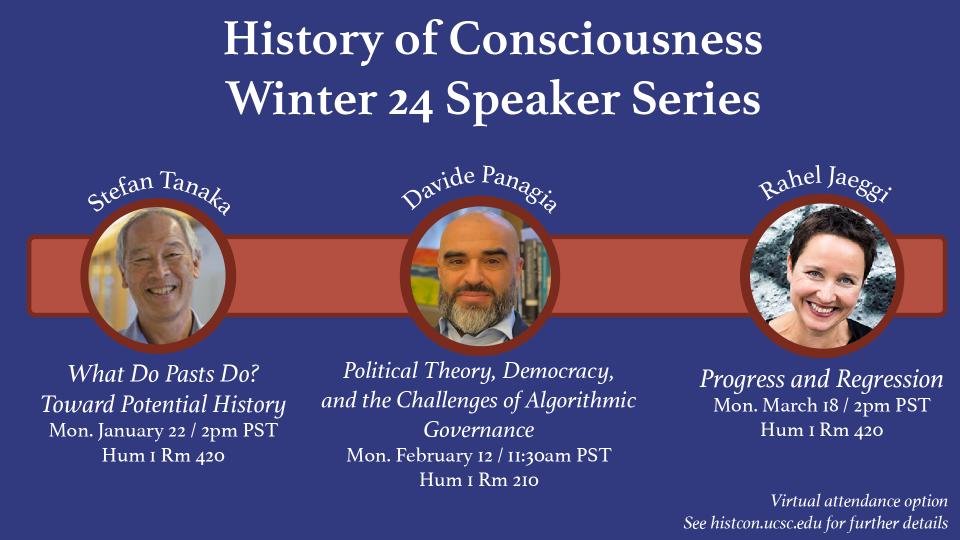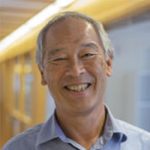Events

- This event has passed.

Stefan Tanaka: What Do Pasts Do? Toward Potential History
January 22, 2024 @ 2:00 pm | Humanities 1, Room 420
The History of Consciousness department is delighted to present: What Do Pasts Do? Toward Potential History with Stefan Tanaka.
This talk is a part of the HISC Winter 2024 Speaker Series. It builds from recent work on time and history that question whether the history understood and practiced over the past two centuries is still apposite for understanding our world today.
An increasing number of writings argue that “time is out of joint,” we are “fatally confused,” in “times of unprecedented change,” or more troubling, “in times of collapse.” My subtitle–drawing from Ariella Azoulay’s book–points to the need for other modes of historical understanding. In this essay, I question a foundational ideas of modern history, the separation of past from present, and argue for pasts rather than “the past.” With this rather simple (but difficult) distinction time and space shift from absolutes within which we exist to modes by which we think; other histories become possible.
My goal is to explore what history (and histories) might become, the potential of history released from the restrictions of chronology. Multiple pasts recognize variability, situatedness, and perspectives; history expands (or returns) to a mode of communication; and pasts require greater articulation of purpose and awareness of responsibility.
 Stefan Tanaka is Professor Emeritus of Communication at the University of California, San Diego. Throughout his career he has inquired into the uses of pasts and time in the writing of history, especially in Japan. Japan’s Orient: Rendering Pasts into History (1993), examines the reconfiguration of Japan’s past as foundational to the redefinition of Japan’s relations with Asia during the early twentieth century. New Times in Modern Japan (2004) is an examination of the social constitution of time in Meiji (1868-1912) Japan. His current research examines the challenge that our digital age presents for history itself. This activity ranges from the philosophical to the practical. His recent book, History without Chronology (2019, Open Access), brings out the historicity of the linear and homogenizing structure of history itself. He has also written several essays on historical narrative and digital media (for example, “The Old and New of Digital History” 2022) and worked (especially with the Force11 community) to foster new, more open modes of scholarly communication.
Stefan Tanaka is Professor Emeritus of Communication at the University of California, San Diego. Throughout his career he has inquired into the uses of pasts and time in the writing of history, especially in Japan. Japan’s Orient: Rendering Pasts into History (1993), examines the reconfiguration of Japan’s past as foundational to the redefinition of Japan’s relations with Asia during the early twentieth century. New Times in Modern Japan (2004) is an examination of the social constitution of time in Meiji (1868-1912) Japan. His current research examines the challenge that our digital age presents for history itself. This activity ranges from the philosophical to the practical. His recent book, History without Chronology (2019, Open Access), brings out the historicity of the linear and homogenizing structure of history itself. He has also written several essays on historical narrative and digital media (for example, “The Old and New of Digital History” 2022) and worked (especially with the Force11 community) to foster new, more open modes of scholarly communication.
The event will take place in-person in Humanities 1, Room 420 at 2:00pm PST. Guests are also welcome to visit the HISC website to join virtually via Zoom. We look forward to seeing you there!
